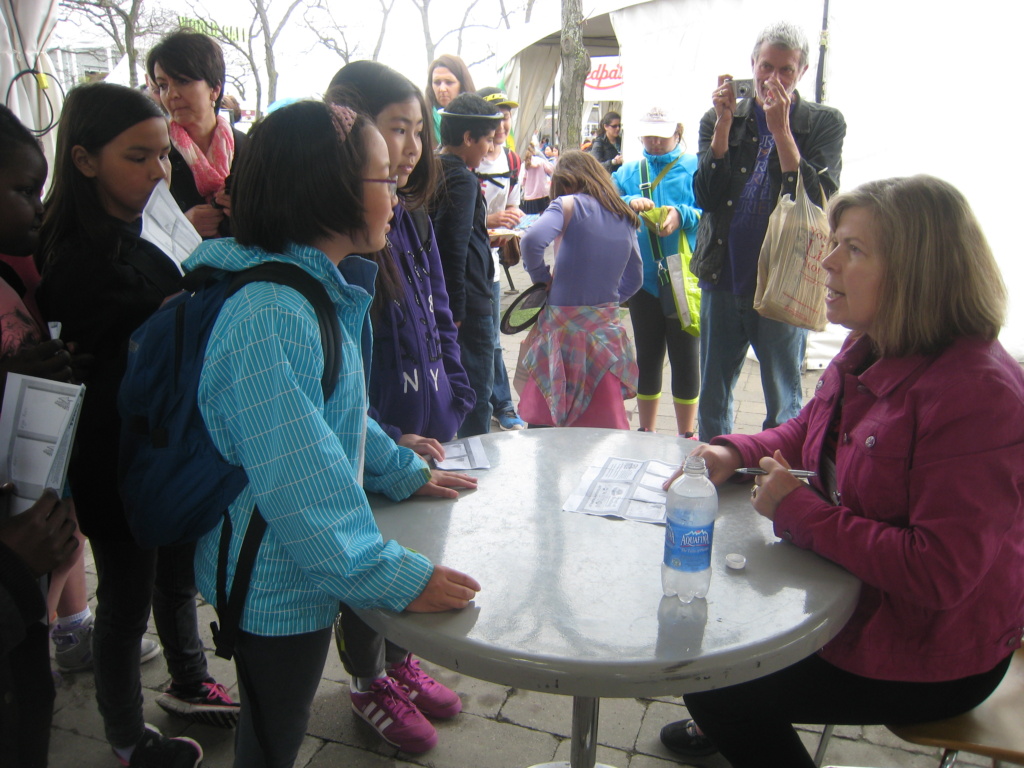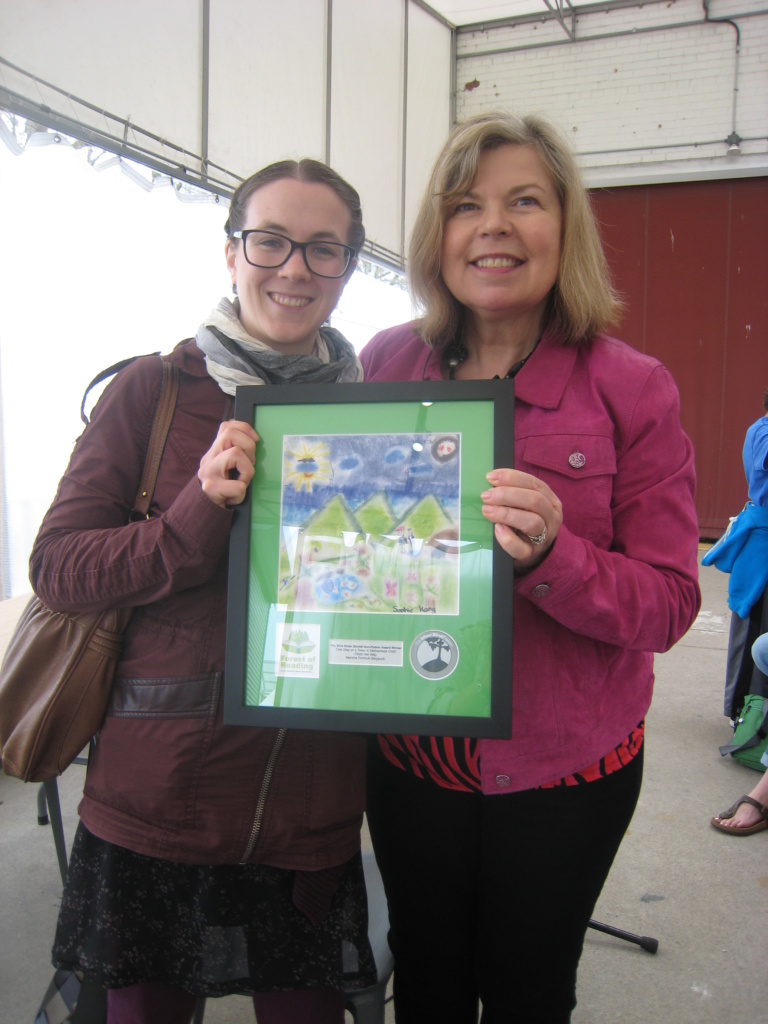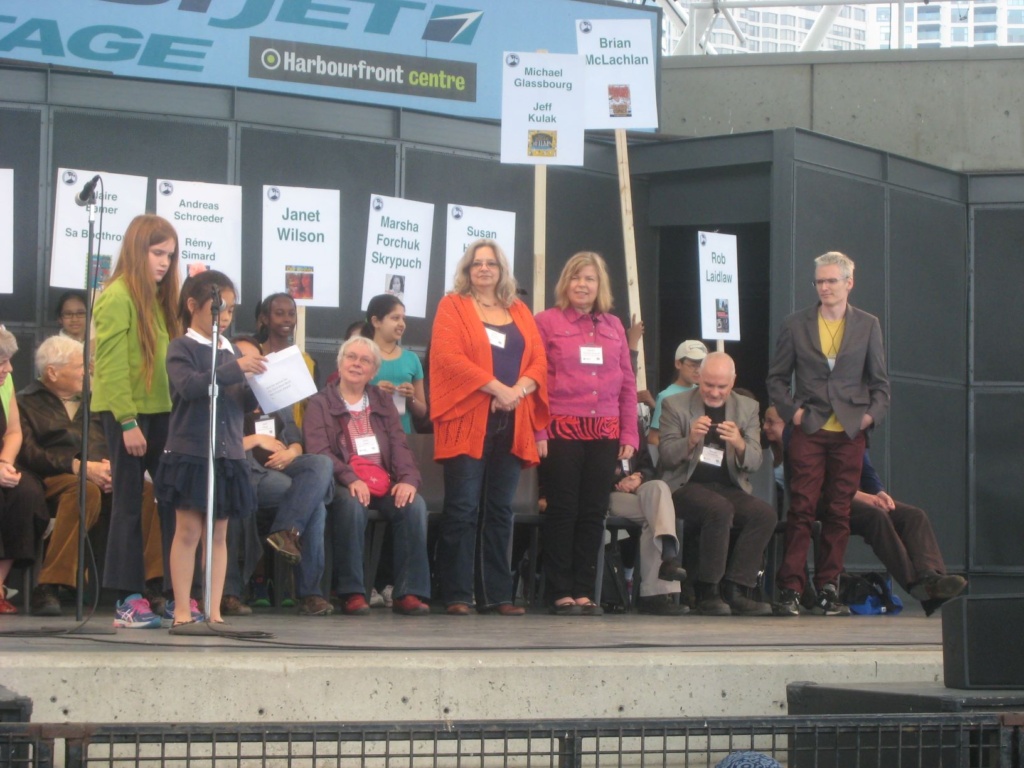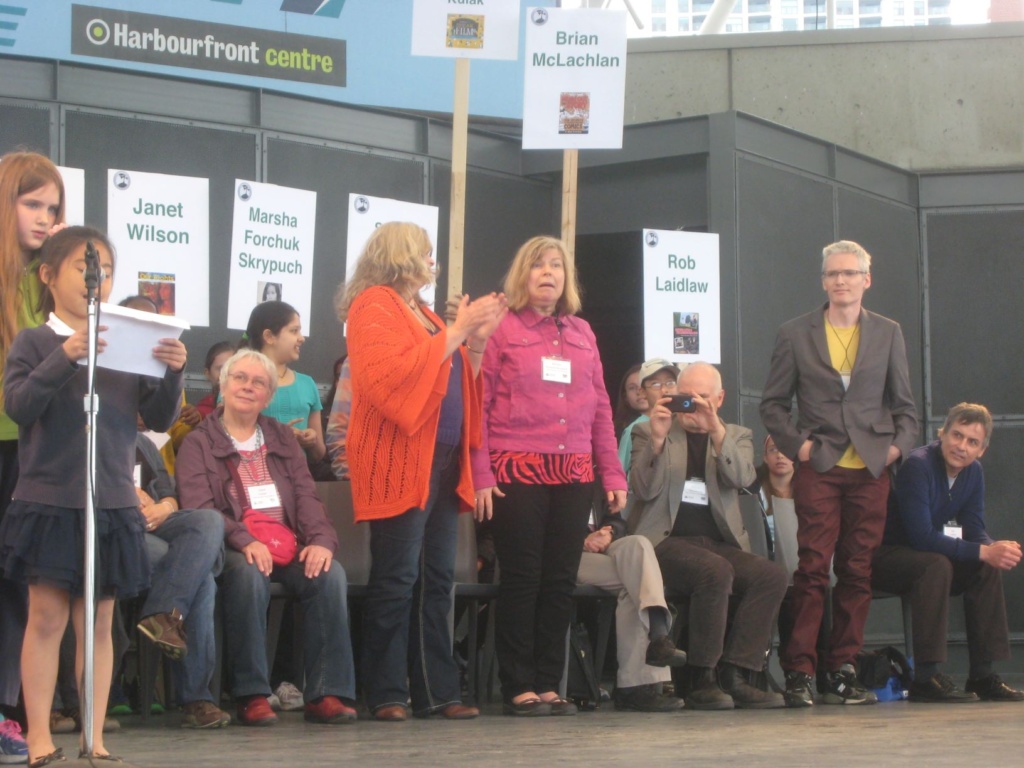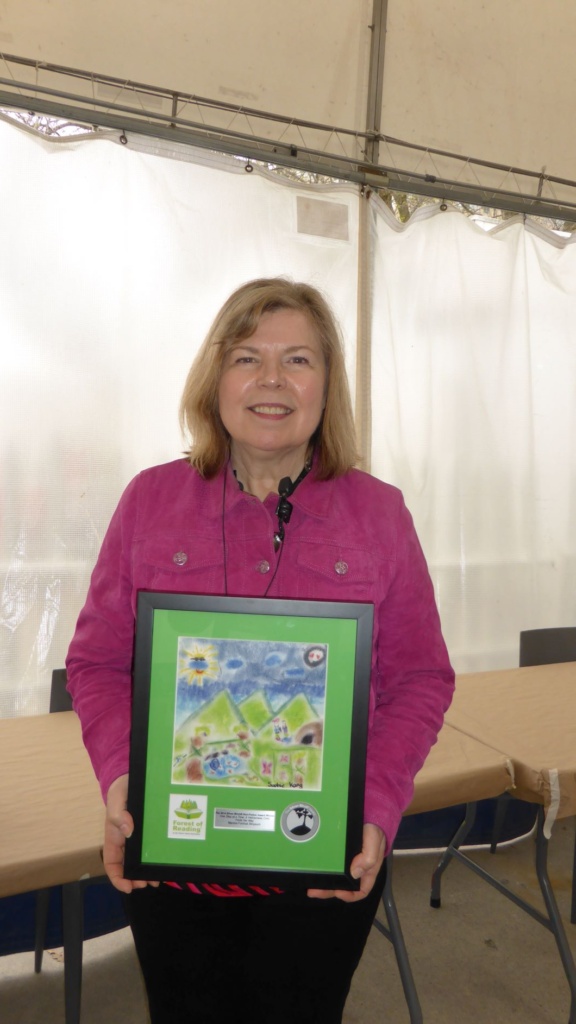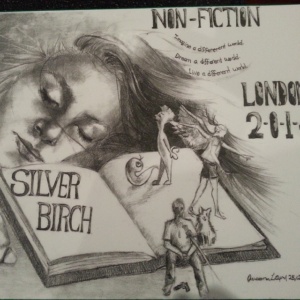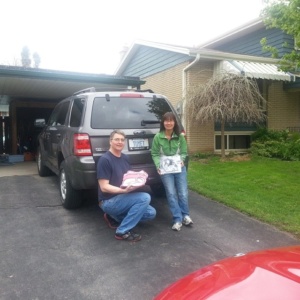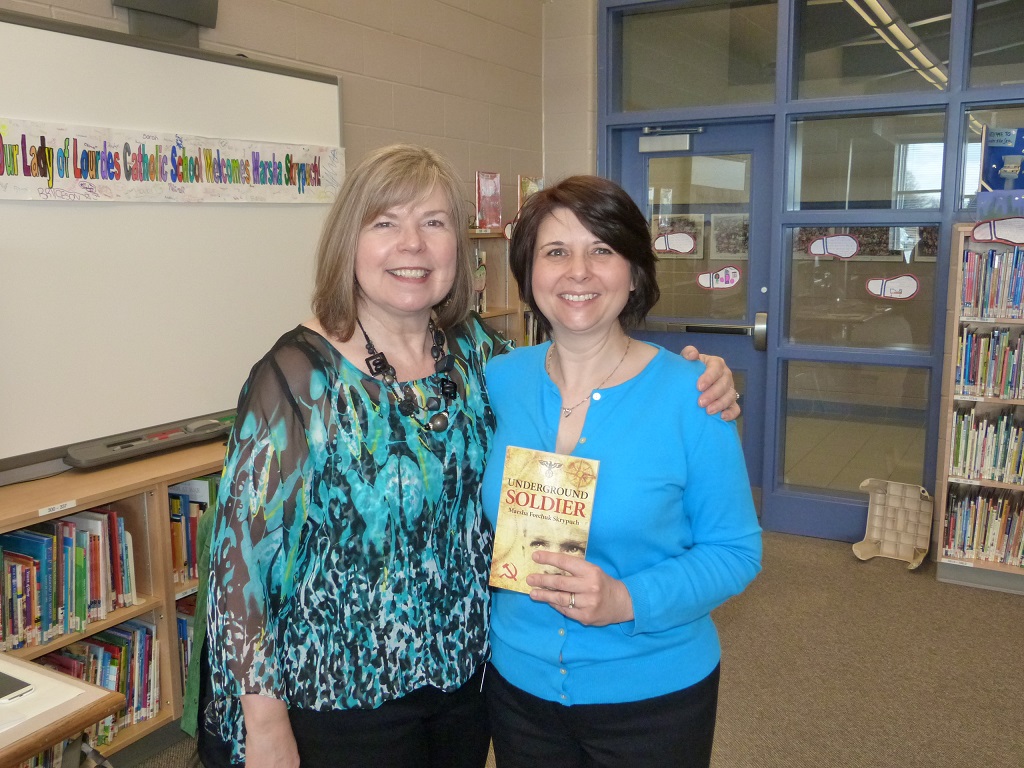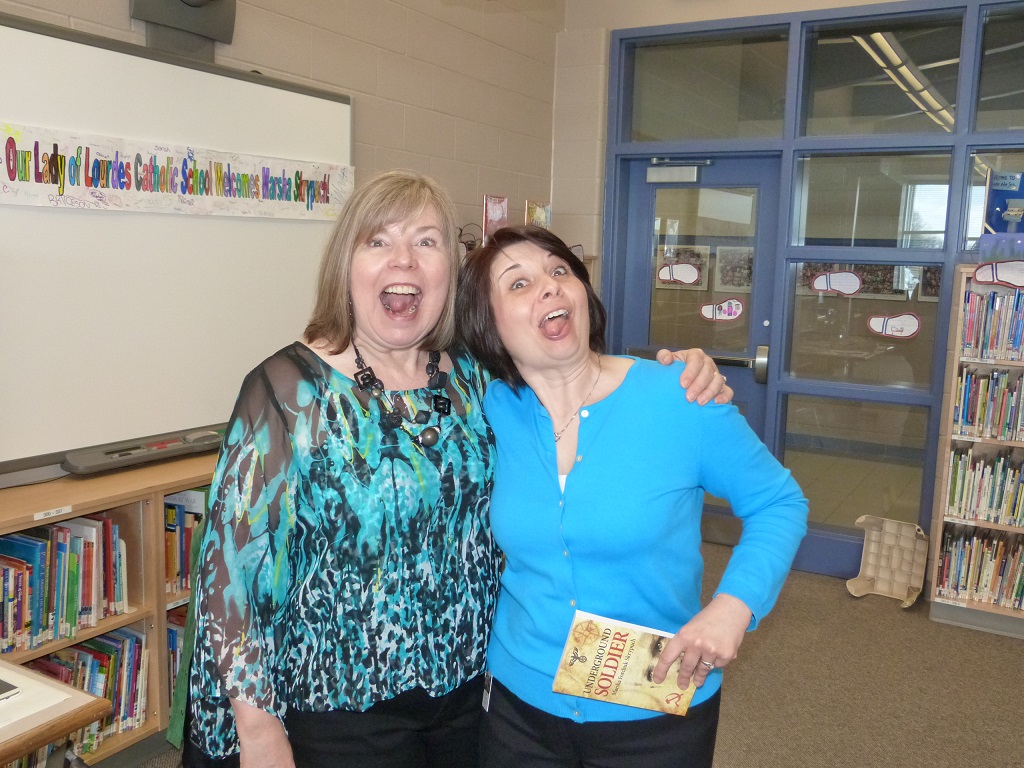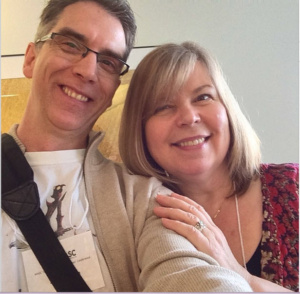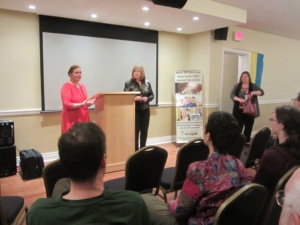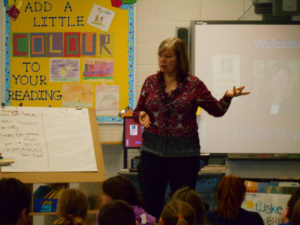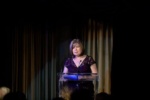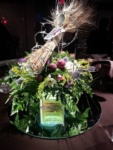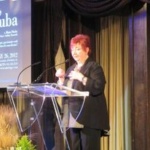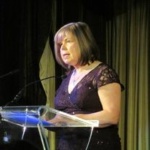With over 17 years in Canadian publishing, Melanie J. Fishbane is a freelance writer and editor who coaches writers on social media and teaches creative writing. A Co-ordinator of Children’s Book Reviews for the National Reading Campaign, she also writes reviews for both Canadian Children’s Book News and The Quill and Quire and has sat on a number of children’s book award juries. A graduate of the Vermont College of Fine Arts Writing for Children and Young Adults MFA program, her first YA novel based on the teen life of L.M. Montgomery will be published under the Razorbill imprint in 2015.Melanie kindly agreed to answer some questions about her involvement in the publishing industry.
How did you get started in the book industry?
I was going to York University and needed a part time job. I applied to Lichtman’s News and Books at the Promenade Mall and was hired on as a part-time employee around 1993.
What was your first position at Indigo?
Temporary employee for a Chapters store that was opening at the Rockland Centre in Montreal in 1999.
In addition to your other work, you are a writer yourself. Can you tell me about your latest project?
I can. I’m working on a YA novel based on the teen years of L.M. Montgomery, the author of the Anne of Green Gables and Emily series (and many others.) It will be released through Razorbill Canada in 2015.
Can you walk me through your typical day?
That is an interesting question for me because I am basically a person with a lot of different things on the go. I would say that before I start my day, I try to get in some yoga, then I’ll journal and make a plan for the day. I’ll work on my freelance and any other work in the morning and then write in the afternoons, checking in periodically in case there is an issue. But I like to make sure that I spend time with my partner in the evenings, who is an excellent cook.
What advice would you give to someone who wanted to get into online merchandising or social media?
If you want to get into online merchandising or social media, I would recommend understanding how online marketing works, trends, social media, etc. I would also recommend having an interest in the area where you are working so that you can stay on top of trends.
What kind of writing are you passionate about?
Writing the comes deep from the heart, where the author has truly devoted him or herself to the topic at hand and where the characters are acting from an authentic place–not just being moved across a story for the sake of plot. I’m passionate about stories that speak to our universal truths and also give us hope and something to think about.
Can you describe the qualities of a dream author to work with?
I’ve had the privilege of working with a few authors in social media and as a writer. I would say that for me it is an author who shows such passion for their craft and gratitude for working with a bookseller–someone who is positive and open to possibilities and just plain fun. I appreciate it when things come in on time, too…This author would be present when we are promoting things through social media, and possibly going over and above to advertising the piece themselves. Enthusiasm and positivity. That is what it is all about in my mind. That is what we all respond to. Regarding my other experiences with authors, I would say that it is about integrity and respect. It is about being constructive without being cruel. Being aware that we are all out to tell the best stories that we can.
And what about your author from heck?
See the opposite of what I wrote above… Honestly, I’m grateful to say that I haven’t really had an “author from heck.” Most of the authors I’ve worked with have been really lovely, gracious and truly happy for the opportunity to promote themselves.
What advice do you have for a first time author?
That would be my question to you as I am a first time author… J As a first time author I’m trying to be patient with myself and allow for things to unfold. Not always succeeding at that but not being hard on myself when it doesn’t all go the way I had initially conceived it. I am also so appreciative of my author community both here in Canada and abroad. I would suggest that for a first time author, that is key–find your people and understand your process. From a marketing perspective I would say that it is about being your most genuine and positive self without being so incredibly pushy that it becomes all about your novel and no one else’s work. I am turned off by people who send out messages through LinkedIn or friends you on Twitter just to let you know they have a book out. Recently, someone messaged me through Goodreads through a review I had written recommending their book. I would say that there is an opportunity to be a positive force through social media and other avenues, consider how will you best represent yourself and your work? Ask yourself how you would feel receiving a letter or email from a complete stranger? It is that idea of treating others as how you would like to be treated. The same goes for personal marketing strategies. When I work with people who are starting out in social media, the first thing I say to them is “do what you feel most comfortable with to show your most authentic self.” Thank you for this opportunity, Marsha.
 Here are Bairdmore students catching a few extra pages before heading up to the balcony!
Here are Bairdmore students catching a few extra pages before heading up to the balcony! I also got a cheque! I gave a short talk, reading, and kids asked questions…
I also got a cheque! I gave a short talk, reading, and kids asked questions…



